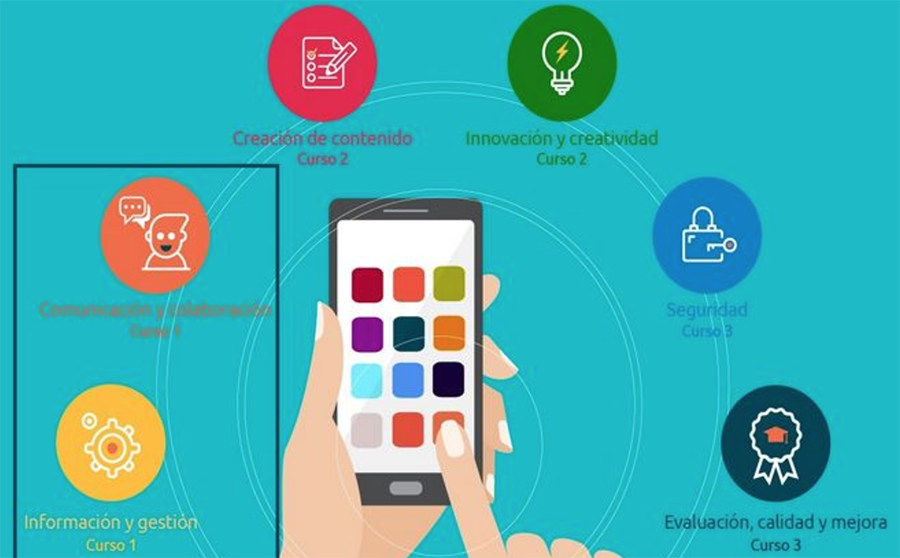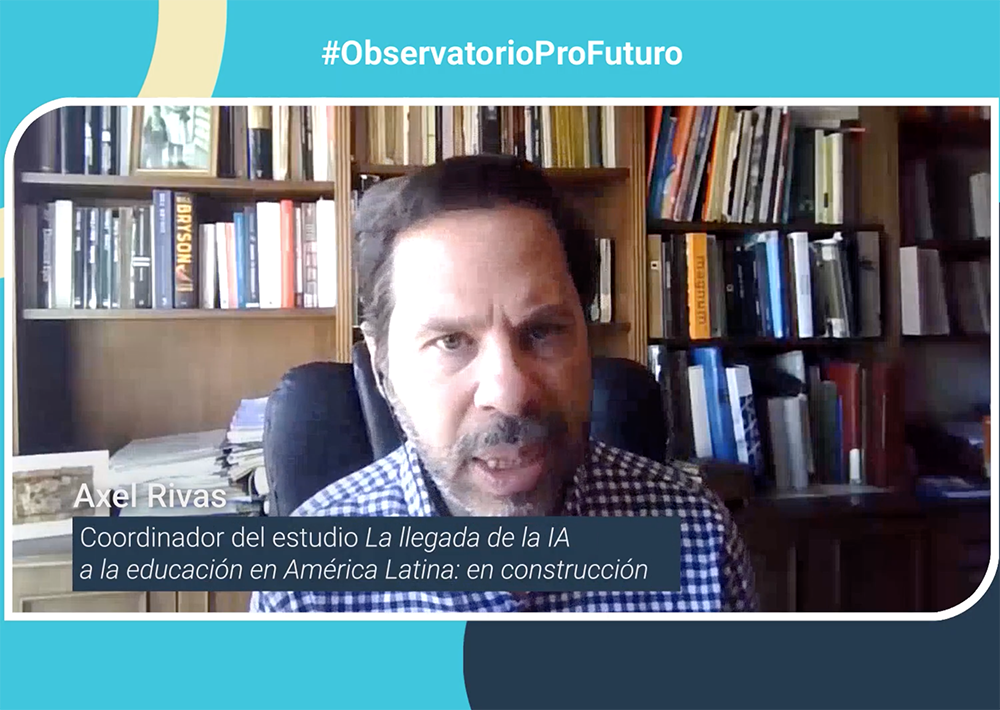The development of safe, critical and responsible digital citizenship is one of the most important issues facing education systems in the coming years. In previous articles we have spoken of the urgent need to address it, from a theoretical perspective. In this post we have put together some practical resources.
FIRST STEPS…
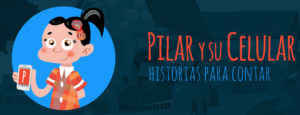 PILAR AND HER MOBILE PHONE
PILAR AND HER MOBILE PHONE
Pilar and her mobile phone is an educational programme designed to help mothers, fathers, teachers and professionals from the educational world in general in the task of accompanying the youngest children (8 to 12 years old) in the beginning of the autonomous, responsible and healthy use of smartphones. The programme, created by PantallasAmigas with the collaboration of Telefónica, is made up of ten animated stories in which Pilar, the child protagonist, presents different everyday situations that serve to reflect on how to enjoy and share digital life through a mobile phone.
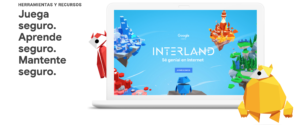 BE GREAT ONLINE
BE GREAT ONLINE
To make the most of the Internet’s possibilities and capabilities, children need to be prepared to make wise choices. Be Great Online is a Google programme that teaches them the fundamental concepts of digital citizenship and safety so they can move and explore the digital universe with confidence. It has a multitude of resources, such as games, downloadable engagements and lesson plans, so that children, parents and teachers can learn together how to be great and exemplary digital citizens.
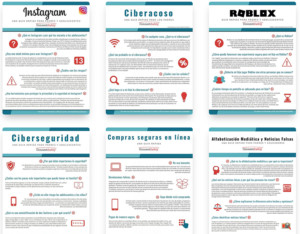 QUICK AND VISUAL GUIDES
QUICK AND VISUAL GUIDES
If you get lost in the information overload and want good recommendations at a glance, we recommend exploring and sharing the quick guides developed by ConnectSafely. You have them on Instagram, cyberbullying, cybersecurity, online shopping, media literacy and fake news, hate speech, sexting, secure passwords and much more.
COMMUNICATION AND COLLABORATION: Courses for Teachers
In this course, developed by Scolartic for ProFuturo and included in its platform, teachers will be able to develop, on the one hand, instrumental, communicative, and collaborative competences related to interaction, communication, and collaboration in digital environments such as social networks and learning communities. And, on the other hand, competences related to the use of technologies for the collective construction of resources, knowledge, and contents.
DIGITAL SKILLS FOR BEGINNING TEACHERS
In this 30-hour course, also included in the ProFuturo platform, teachers with little experience in the digital world will be able to learn the most basic skills related to teaching in the digital world: email management, search and organisation of information, educational blogs, collaborative creation of online content and learning and teaching with social networks. These are some of the examples of content developed in its three learning modules.
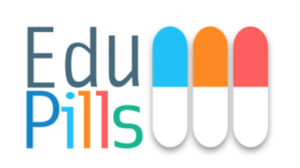 INFORMATION PILLS
INFORMATION PILLS
EduPills is a micro-training app for teachers, developed by INTEF, and focused on teachers acquiring and/or developing competence, abilities and digital skills in a simple and quick way. In the app, teachers will find educational pills classified by digital skills, which can be marked as favourites, shared on networks… A small format for a great idea.
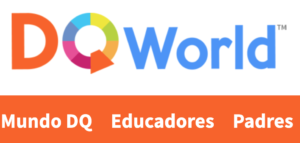 WHAT IS YOUR DIGITAL INTELLIGENCE QUOTIENT?
WHAT IS YOUR DIGITAL INTELLIGENCE QUOTIENT?
DQ World brings the principles of emotional intelligence to the digital world by developing values such as integrity, respect, empathy and prudence. Through a programme for educators and another for parents, children will be able to develop the eight digital citizen skills: digital identity, screen time, dealing with cyberbullying, managing cybersecurity, managing privacy, critical thinking, digital footprint and digital empathy.
CREATING CONTENT RESPONSIBLY
DIGITAL SKILLS FOR TEACHERS II: WE LEARN HOW TO CREATE CONTENT FOR OUR CLASSES
Once we have laid the foundations of digital skill, we can start creating content to incorporate it in a creative and innovative way into our pedagogical practices. Thus, in this course, teachers will learn to create digital content in all formats (image, video, audio, school radio, storyboards, attractive presentations…) and will discover innovative methodologies such as the inverted classroom, augmented reality or project-based learning which, combined with technology, can radically change the way they teach.
TURN YOUR STUDENTS INTO BOOKTUBERS!
Do you know what a BookTuber is? Once we have acquired the necessary skills and competences, we can launch into new strategies to turn students into content creators. Helping them to create and bring positive content online that adds value to others helps them to become responsible digital citizens. With this course we will also motivate them to acquire or resume the habit of reading. Turn your students into real BookTubers so that they can create and spread their literary reviews through social networks. You will be able to guide them in setting up their own blog. They will then learn how to record and edit videos and create their own YouTube channel to unleash their creativity.
DIGITAL PIRACY: RESPECTING OTHER PEOPLE’S CONTENT
The intangibility of content circulating on the web means that sometimes, for a child, property rights are not as clear as in other cases. It is important to make internet users aware, from a young age, that much of the content accessed through the internet has owners and cannot be downloaded or disseminated in any way. In addition to being a crime, digital piracy can expose them to hidden risks, such as inappropriate content, disruptive pop-ups and cyber-threats. On this website you can explore with young people the dangers of digital piracy and how to protect ourselves from them.
DEVELOPING CRITICAL THINKING
JUST BECAUSE IT’S ON THE INTERNET, DOESN’T MAKE IT TRUE
Do you believe everything the internet says? The democratisation of information brought about by the advent of new technologies is a wonderful thing. Having any information a click away, in just a few seconds, is priceless. However, it has also led to the emergence of a great deal of unreliable content. On the internet, anyone can share their thoughts and opinions and release them to the world in the blink of an eye. Therefore, the ability to critically analyse all this information has become a key competence today. In this article, the Telefónica Foundation in Venezuela gives us some keys to improve our information-seeking habits.
TURN YOUR STUDENTS INTO SECRET AGENTS IN SEARCH OF THE TRUTH
The Eraser Project is a gamified training in four modules in which students will face real situations and learn how to solve them, enhancing their media literacy and critical thinking. The game, which is part of the (In)fórmate initiative, promoted by the FAD, Google and the Spanish Government, consists of four levels, corresponding to the four skills that must be acquired to develop critical thinking when consuming information: the interpretation and analysis of information, the ability to deduce conclusions from this information, the evaluation of information and the ability to produce one’s own content based on rigorous information.
SECURITY, SECURITY AND SECURITY
DIGITAL SKILLS FOR TEACHERS III: NETWORK SECURITY
The third and final part of the Digital Skills for Teachers course focuses, among other things, on online security, addressing issues such as data theft, cyberattacks and digital identity.
SECURITY WITH GOOGLE FOR EDUCATION
The Google for Education platform has developed a course for teachers and students to learn how to create a safe and positive online experience. It consists of several units in which, through various readings, videos and activities, teachers will learn how to integrate safety activities and digital citizenship into their curricula.
The citizens of 2030 will be digital citizens no matter what. In order for them to be collaborative, creative, critical, autonomous and empowered citizens, education systems must promote and implement public policies where these digital skills are included in the curriculum and educational practices in the classroom. And always from an Open School vision, where both civil society and business agents (technology companies, third sector, corporate foundations…) assume a certain co-responsibility for this to be carried out in an innovative way. The digital world, beyond the internet, will have to be a place of closeness, rather than a constant and insecure threat emotionally, culturally or morally. In short, an environment where we will have to live, work, entertain ourselves… but also our “digital” home, a place of welcome and coexistence.



